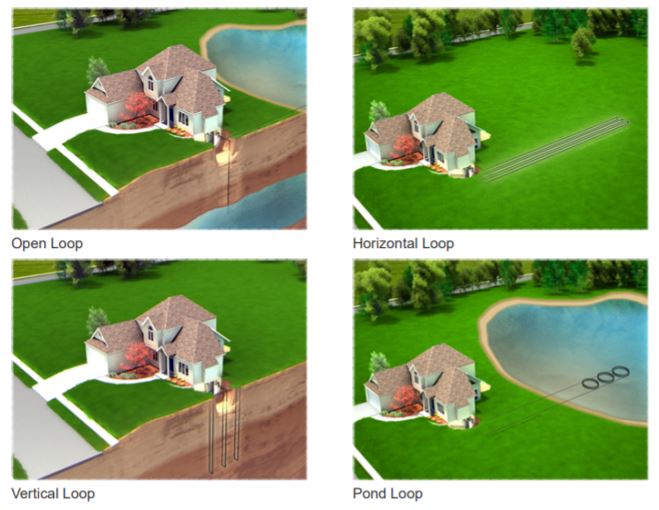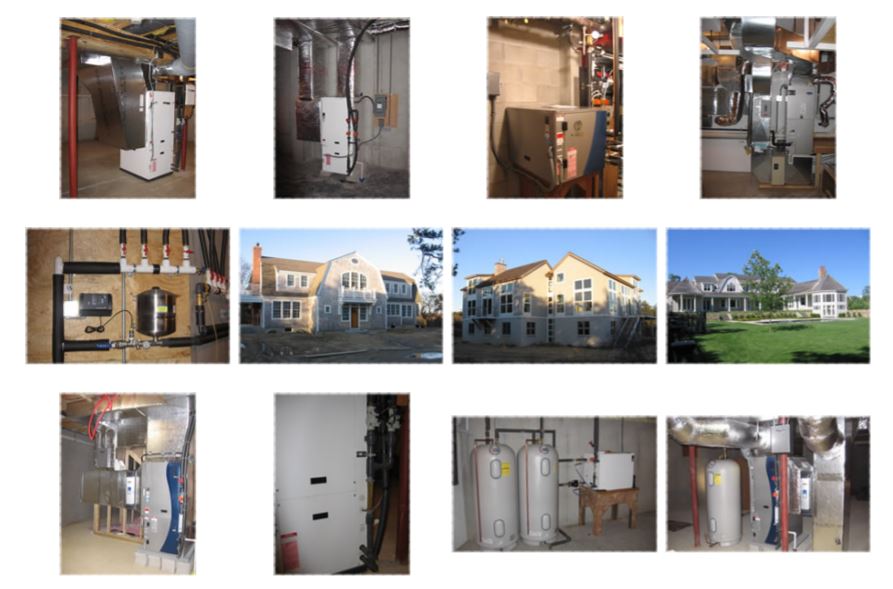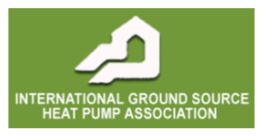Geothermal Systems
Introduction
Heat your home with your well water! Do it for much less operating cost than oil or gas. Have air conditioning during the summer hot
spells. And have the most comfortable year round heating and cooling system available today.
It may sound too good to be true, but it’s not; our geothermal systems are the least costly method of heating your Cape Cod home.
Now with the new federal tax incentive the installation of these systems is competitive with traditional fossil fueled heating and air
conditioning systems. Our Energy Star rated geothermal systems will qualify for the federal personal income tax credit in the
amount of 30% of the total installation cost. This includes the cost of the geothermal heat pump, the water wells or ground loop,
the installation labor, the duct system, the electrical work, and any other related costs.
Geothermal is suitable for both existing homes and new homes. If you are considering upgrading your existing heating system, give
us a call for a free home inspection and geothermal review. If your home has an existing well and a duct system, both may be able
to be used for the geothermal system, thereby lowering your installation cost. If you are planning a new home or major renovation,
geothermal is the most significant energy savings investment you can make. Give us a call during the planning or design stage and
we we’ll be happy to advise the proper system for your specific situation
Benefits
Our geothermal systems are the most advanced heating systems available today and are backed with our reputation for careful
design, quality installation, and extended warranties. A few of the geothermal systems benefits are:
- Dramatically lower monthly utility bills for heating, air conditioning, and hot water
production; as much as 60% savings for many homes. - Safe and clean – no flame, no flue, no odors; just safe reliable operation year after year.
- Quiet operation – no noisy outside condenser; just a single, self contained quiet unit in the
basement. - Environmentally friendly – uses a renewable energy source and emits no “greenhouse
gases”. You will dramatically lower your carbon footprint. - Reliable – microprocessor controls and state-of-the-art components allow smooth operation
and years of maintenance-free service. - Comfortable – Customers report this is the single greatest benefit. In the heating mode
these systems do not dry out the air and maintain a very stable interior temperature.
How Geothermal works
Geothermal systems utilize the constant temperature of the earth to extract heat energy to heat your home. This heat energy can be
harvested from your well water or a series of pipes buried in the ground.
For a well system, known as an open loop, the well water is fed thru the heat pump and then returned to the ground thru a second
well known as a discharge well. The water is not altered chemically; its temperature is only lowered or raised. Only 4 to 8 GPM is
required to heat and cool most homes. These open loop systems are particularly well suited for areas like Cape Cod where ground
water is abundant and relatively close to the surface.
Another alternative is to circulate water thru a network of pipes that are buried in the ground and connected to the heat pump. This is
known as a closed loop system. These pipes can be laid horizontally in multiple rows in trenches, or can be installed vertically in
multiple boreholes. Other configurations are available depending on particular site conditions.
Once the earth’s heat is captured by the geothermal heat pump it is transferred to the home thru a traditional warm air duct system.
In the summer the heat pump operation is automatically reversed and cool air is distributed thru the duct system.
Four basic types of geothermal energy sources:

Open loop systems utilize ground water as a direct energy source. In ideal conditions, an open loop application can be the most
economical type of geothermal system.
Horizontal loops are often considered when adequate land surface is available. Pipes are placed in trenches, in lengths that range
from 100 to 400 feet.
Vertical loops are the ideal choice when available land surface is limited. Drilling equipment is used to bore small-diameter holes
from 75 to 300 feet deep.
Pond Loops may be installed when there is an adequately sized body of water close to your home.
For further information on geothermal systems, please visit WaterFurnace.com or the International Ground Source Heat Pump
Association.
Geothermal Installations





